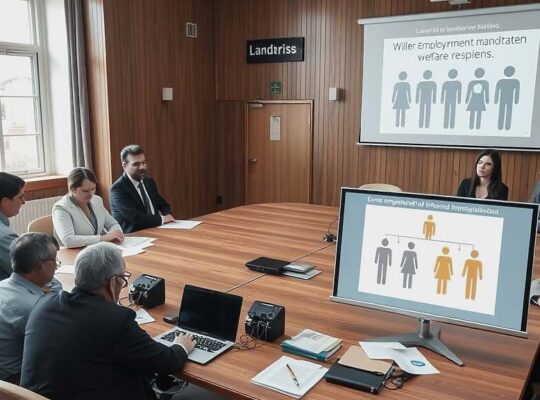Members of Germany’s governing coalition – the Social Democratic Party (SPD) and the Green Party – have publicly disagreed with economist Veronika Grimm’s assessment that cuts to social security benefits are unavoidable.
Dirk Wiese, SPD parliamentary group manager, stated that Grimm’s approach does not align with the views of the Social Democrats. He emphasized that solutions to financial challenges should not solely rely on reducing benefits for citizens. Wiese referenced a coalition agreement to establish a commission tasked with reforming the social welfare state, expecting its findings by the end of the year. He underscored the SPD’s belief in a functioning social welfare system as integral to Germany’s social market economy.
Andreas Audretsch, Green Party parliamentary group vice president, also voiced criticism. He argued that further reductions to pensions would disproportionately impact women, particularly those in eastern Germany, potentially leading to increased poverty in old age. He highlighted that many rely heavily on statutory pensions and that the current pension level of 48 percent should be maintained.
Audretsch suggested alternative measures to stabilize social systems, focusing on increasing labor force participation. He cited the potential for an additional 850,000 full-time jobs if women had greater access to full-time employment opportunities, as well as improved integration of immigrants into the workforce. He also called for a reassessment of private pension schemes, deeming the current “Riester” model ineffective.
Audretsch challenged proponents of benefit cuts to specify which services would be reduced and which citizens would be affected. He advocated for improving the efficiency and effectiveness of existing systems rather than reducing access to care.
Grimm, a member of the German Council of Economic Experts, had previously argued that, given the strained financial situation of social insurance funds, benefit reductions should be considered. She stated the need for greater transparency regarding the affordability of various social benefits and cited the so-called “Haltelinie” – a mechanism for maintaining pension levels – as unsustainable in the long term. She also suggested that individuals capable of funding their own long-term care should do so to ensure the system’s financial viability.












